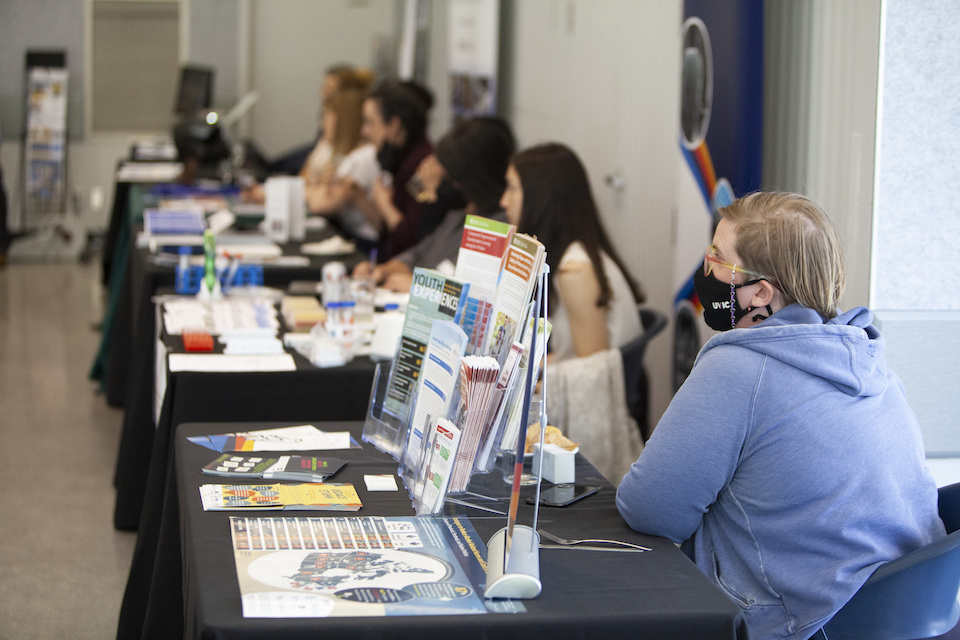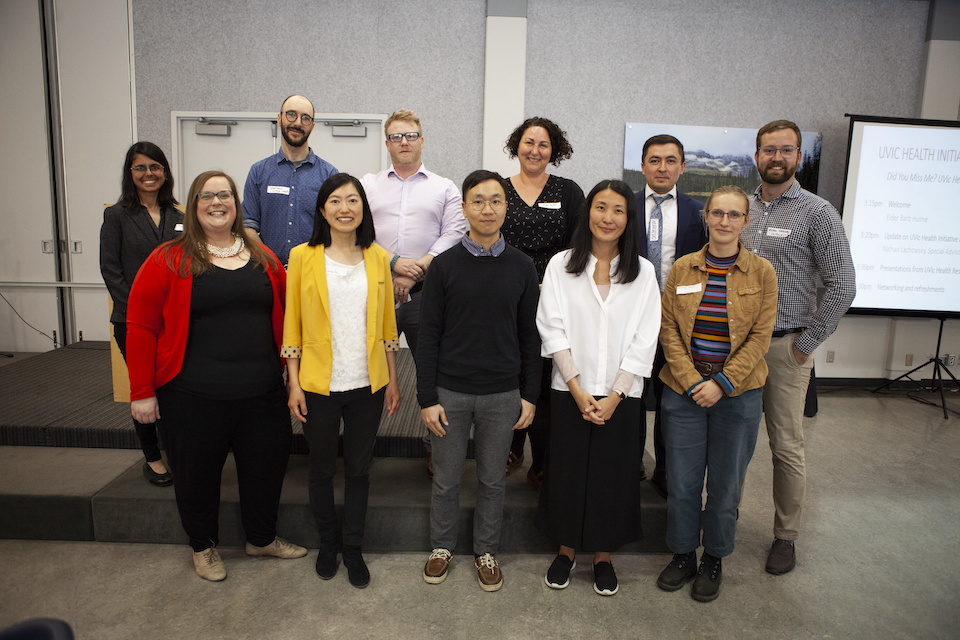Expert Q&A on UVic’s health research edge
Graduate Studies, Libraries, Peter B. Gustavson School of Business, Science, Humanities, Education, Human and Social Development, Engineering, Social Sciences

If the COVID-19 pandemic has taught us nothing else, it’s that health is about so much more than an individual’s medical condition. Science, social structures and politics have all played enormous roles in communities’ reaction to the disease.
It’s appropriate, then, that the University of Victoria launched the UVic Health Initiative (UHI) in the fall of 2019. Developed after a year of campus-wide consultation, the goal is to advance lifelong health while enhancing the quality and raising the profile of health research, programs and related activities at the university—all while reinforcing the UVic Aspiration 2030 impact areas of health and wellness. UHI’s scope of research is varied, from advanced tumour imaging to aging to social isolation.
In late May, UVic health researchers, community organizations, government and industry partners gathered to learn about the multi-disciplinary research happening at UVic. Nathan Lachowsky, special advisor of health research, in the Office of the Vice-president, Research and Innovation, shares his thoughts on the importance of its impact to UVic, people and the planet.
Q. What are the key areas of focus in the UVic Health Initiative?
A. We have four signature areas: healthy aging, Indigenous health, mental health and translational medicine. And that really highlights some of the crosscutting areas of work taking place on our campus and out in society. There's a variety of approaches that we take to health research at UVic: neuroscience, health services and policy evaluation, advanced data analytics, social and environmental determinants, biomedical technologies as well as health, humanities and the arts. One of the unique aspects of UVic is our ability to collaborate across disciplines to tackle the key issues facing our society around health and wellness. It’s exciting to see this progressive work, to see social scientists working with chemists to address the overdose crisis. And we have over 200 faculty that have diverse expertise in health and wellness.

Q. How important is this multi-disciplinary approach to health research?
A. There's an old saying referencing “from cell to society” that really does encapsulate what UVic does. Health is far more than just our individual disease status, or state of health and wellness. A lot of work is happening at the policy and social determinants level as well. What's important is that no single approach will help us solve today’s challenges. We can see that when we think about COVID-19. It's great that we were able to develop vaccines given a lot of great work by many different scientists. However, there are a lot of policy issues, a lot of economic issues and a lot of social equity issues that arose as well. And so, having this broad array of diversity in our health research community at UVic is really what's required to tackle the world’s new and emerging health challenges and threats.
Q. What should the public know about the impact of UVic’s health research?
A. As individuals and communities, we are facing growing threats of global pandemics, emerging pathogens, chronic health conditions, climate change and social inequities. UVic researchers are looking at what is happening in our environment, and in our social and economic spaces to understand how this is affecting our health, and what we can do about it. Health is often thought about too narrowly as just medicine. Through the work of our diverse scholars, UVic is really shaping the ways in which we think about health more broadly. One of the big wins in our UVic Health Initiative was launching a collaborative health research grant program through which investigators from different disciplines work together on new questions—for example, overcoming weight stigma in mental health training as well as developing improved cancer tumour imaging and treatments. To be able to see those kinds of new collaborations is really exciting.
-- 30 --

